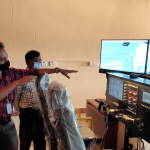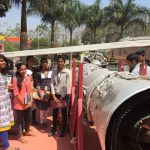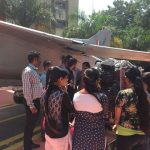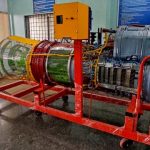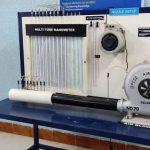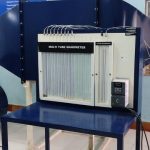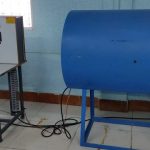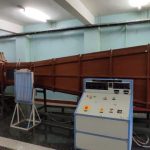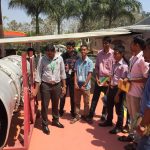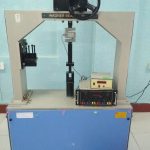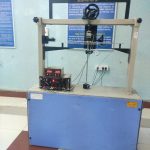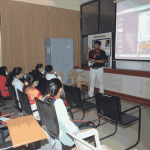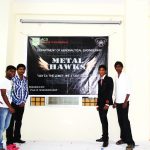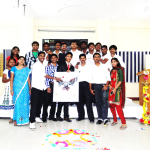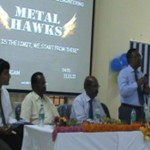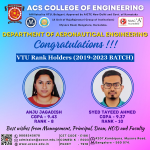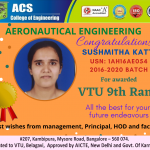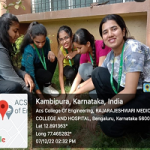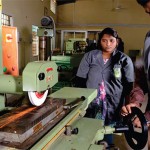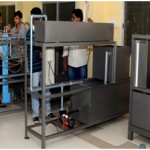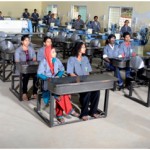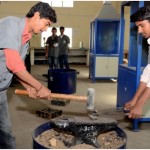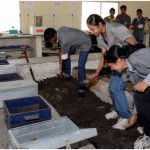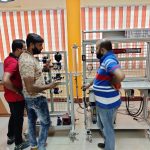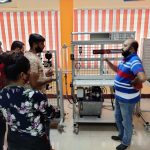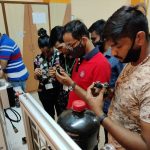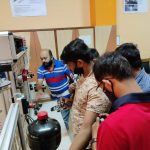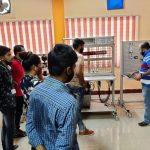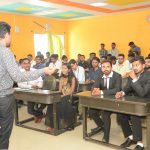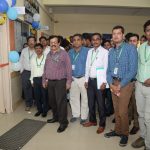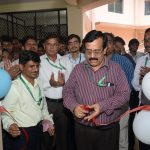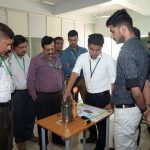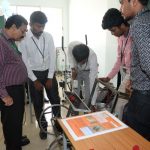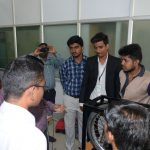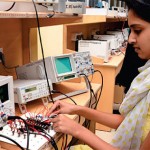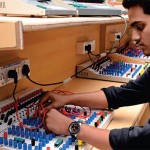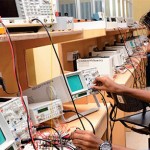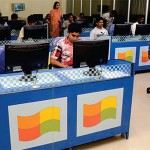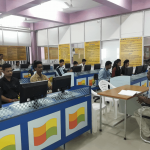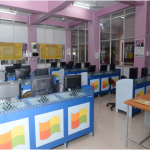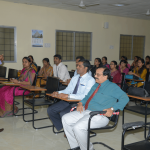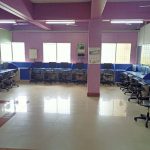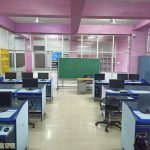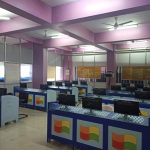Overview
The Physics Department in ACS College of engineering college plays a critical role in shaping the scientific and technical foundation of engineering students. Its main purpose is to deliver fundamental principles of physics and demonstrate how they apply to various engineering fields. Here’s an overview of the department’s role, structure, and key functions:
Vision
The department’s vision typically revolves around fostering scientific inquiry, innovation, and research in fields like nanotechnology, materials science, renewable energy, and quantum mechanics, which are essential for technological advancements.
Mission
The primary mission of the Physics Department in an engineering college is to equip students with a comprehensive understanding of fundamental physics concepts and their applications to solve engineering problems.
PROGRAM EDUCATIONAL OBJECTIVES (PEO’S)
The objective of the Department of is to provide students with a solid foundation in the principles of physics, which are fundamental to understanding and solving complex engineering problems. Here are the key objectives:
- PEO-1: Core Knowledge To impart fundamental knowledge in classical, modern, and applied physics, including topics like mechanics, electromagnetism, thermodynamics, quantum physics, optics, and material science.
- PEO-2: Application to Engineering To connect physics concepts with real-world engineering problems, showing students how physical principles are used in the design, analysis, and optimization of engineering systems and technologies.
- PEO-3: Research and Innovation To foster a research-oriented environment that encourages students and faculty to engage in innovative research across various fields of physics that directly relate to engineering, such as nanotechnology, materials science, photonics, renewable energy, and semiconductor devices.
- PEO-4: Problem Solving and Analytical Skills To develop students’ ability to think critically, analytically, and solve complex engineering problems using physical laws and mathematical modelling.
- PEO-5: Laboratory Skills To provide practical experience through well-equipped physics laboratories, enabling students to conduct experiments, analyze data, and understand the experimental basis of physical theories.
- PEO-6: Interdisciplinary Learning To offer interdisciplinary courses that combine physics with engineering disciplines like mechanical, electrical, civil, and computer engineering, ensuring that students understand the cross-disciplinary nature of modern engineering challenges.
- PEO-7: Preparation for Higher Studies To prepare students for advanced studies in engineering and physics-related fields, including research opportunities, postgraduate programs, and interdisciplinary studies.
- PEO-8: Sustainability and Technological Advancement To contribute to the development of sustainable technologies by applying principles of physics to address challenges such as energy efficiency, environmental conservation, and the advancement of cutting-edge technologies.
Curriculum and Courses
The department is responsible for designing and delivering physics courses for undergraduate (UG) and sometimes postgraduate (PG) engineering students. Key areas of study include:
- Classical Mechanics: Understanding motion, forces, and energy, essential for disciplines like mechanical engineering.
- Electromagnetism: Study of electric and magnetic fields, essential for electrical, electronics, and communications engineering.
- Thermodynamics: Principles of heat, work, and energy transformations, relevant to mechanical and chemical engineering.
- Optics and Waves: Important for fields such as optics, telecommunications, and materials science.
- Quantum Mechanics and Modern Physics: For understanding the behavior of matter at atomic and subatomic scales, crucial for fields like nanotechnology and semiconductor engineering.
- Solid-State Physics: Focus on the properties of materials and materials science, important for civil, mechanical, and electrical engineering.
- Mathematical Methods for Physics: Providing students with the tools needed for solving complex engineering and physics problems.
These courses help students grasp the scientific principles underlying engineering technologies.
Laboratories and Practical Learning
Physics departments are equipped with various laboratories that offer students hands-on experience to reinforce theoretical knowledge. Labs include:
- General Physics Lab: Experimentation in mechanics, thermodynamics, optics, and electromagnetism.
- Advanced Physics Labs: Focus on specialized experiments related to modern physics, such as lasers, semiconductors, and quantum mechanics.
- Material Science Lab: Study of the physical properties of materials, which are fundamental to engineering.
- Computational Physics: Using computer simulations and modeling to solve physics problems that are difficult to analyze analytically.
Research and Innovation
Research is a key focus of the Physics Department. Faculty members engage in cutting-edge research in various domains such as:
- Nanotechnology: Development of tiny materials and devices that can revolutionize engineering fields.
- Renewable Energy: Research on efficient energy conversion, storage, and sustainable technologies.
- Quantum Computing and Semiconductors: Advances in microelectronics and computing technologies.
- Optoelectronics and Photonics: Study of light and its applications in communication, sensors, and imaging.
- Materials Science: Research on new materials that can improve the performance of engineering systems and devices.
These research areas not only contribute to scientific advancement but also enhance the academic environment by involving students in research projects.
Interdisciplinary Collaboration
Physics departments in engineering colleges frequently collaborate with other engineering departments to offer interdisciplinary courses. For example:
- Collaboration with Electrical Engineering on topics like electromagnetism, semiconductor physics, and communication systems.
- Collaboration with Mechanical Engineering on thermodynamics, mechanics, and material science.
- Working with Civil Engineering on structural mechanics and the behavior of materials.
This interdisciplinary approach helps students apply physics to real-world engineering challenges.
Faculty and Expertise
The department typically has a blend of experienced faculty members with expertise in various branches of physics, including both theoretical and experimental physics. Many faculty members are involved in research and contribute to global scientific knowledge, while also mentoring students in their academic and research pursuits.
Student Development
The Physics Department focuses on holistic student development by encouraging:
- Problem-solving skills: Through problem sets, assignments, and projects that require critical thinking and application of physics principles.
- Research-oriented mindset: By involving students in departmental research projects, conferences, and seminars.
- Innovation and creativity: Encouraging students to work on innovative projects, prototypes, and solutions for real-world problems.
Extracurricular Activities
The Physics Department often organizes various activities such as:
- Workshops and seminars with experts in physics and engineering.
- Science clubs or student societies for students interested in exploring physics beyond the classroom.
- Participation in competitions related to engineering challenges, where students can apply their physics knowledge.
Postgraduate and Ph.D. Programs
Physics Department also offers doctoral (Ph.D.) programs. These advanced programs provide students with an opportunity to specialize in areas of physics relevant to engineering, such as nanoscience, materials science, or energy systems.
Conclusion
In an engineering college, the Physics Department is essential for imparting foundational knowledge, fostering research, and promoting innovation in engineering. It helps students understand the physical principles that underpin engineering technologies, equipping them to tackle the complex challenges of modern engineering fields.
Publications
Publications of Dr. Selvanandan (Physics HOD)Time Table
ODD Semester Time Table 2024-25Scheme of Teaching and Examinations 2022-23 (Physics Group)
Mechanical Engineering SchemeElectrical & Electronics Engineering Scheme
CSE Scheme







